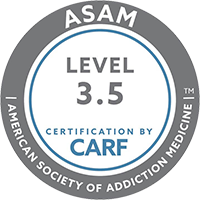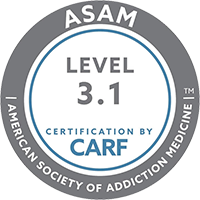
Addiction is often referred to as a “family disease” because its effects ripple out, touching everyone close to the individual struggling. When a loved one enters treatment, families often experience a mix of emotions, relief, fear, hope, and uncertainty. Recovery is not just an individual journey; it’s a family journey. The support, understanding, and consistency of loved ones can make a powerful difference in helping someone stay the course and build a new life in recovery. However, knowing how to offer effective, healthy support can be challenging. Below are practical tips for families navigating this vital period, both while their loved one is in treatment and as they return home.
1. Stay Connected, But Respect Boundaries
It’s natural to want to check in constantly, but recovery requires space for healing. Communicate encouragement through letters or phone calls, while also allowing your loved one to fully engage in treatment. Treatment facilities provide structure, therapy, and a safe environment for your loved one to focus on healing. Respecting program guidelines and boundaries shows trust in the process and gives your loved one the opportunity to grow independently.
2. Offer Encouragement, Not Control
Addiction can leave families feeling powerless. You might be tempted to “fix” things, but recovery isn’t about control; it’s about empowerment. Focus on offering love, encouragement, and understanding rather than managing every detail of your loved one’s life. Celebrate small victories, and remind them that you believe in their ability to change.
3. Educate Yourself About Addiction and Recovery
Understanding addiction as a disease, not a moral failure, can change everything. Learn about triggers, relapse prevention, and the stages of recovery. Be aware of relapse warning signs. Educate yourself on what to look for, such as isolation, change in sleeping/eating habits, or secretive behavior. Discuss in advance what you will do if a relapse occurs. This might include immediately calling their sponsor, therapist, or the treatment center. A prepared response is always better than an emotional reaction.
4. Take Care of Your Own Well-Being
Supporting someone in recovery can be emotionally draining. You cannot pour from an empty cup. Family members often experience burnout, grief, anger, or guilt. Seeking support for yourself is not selfish; it’s essential for being able to support your loved one long-term. Attend a family support group like Al-Anon or Nar-Anon, talk with a counselor, and spend time doing things that bring you peace. Healing for your loved one begins with healing for you, too.
5. Create a Stable, Substance-Free Home Environment
When your loved one returns home, stability and structure matter. Remove alcohol or other substances from the home, set clear expectations, and maintain consistent routines. A calm, safe, and supportive environment helps sustain the progress made in treatment.
6. Support Continuing Care
Your loved one will leave treatment and will need to continue care, which usually involves therapy appointments, support group meetings (like AA/NA), and sober activities. Gently ask about their commitments: “When is your next therapy appointment?” or “How was your meeting tonight?” Do not nag or interrogate. If recommended, attend family counseling sessions. This is where you work on communication patterns, conflict resolution, and rebuilding trust together
7. Be Patient. Recovery Takes Time
Recovery isn’t a straight line. There will be good days and hard days. Patience, grace, and consistency go a long way in showing your loved one that lasting change is possible and that they are never alone in the process.
While addiction affects the whole family, so does recovery. When loved ones learn, grow, and heal together, the chances of long-term success increase dramatically. Your unwavering love and commitment are powerful forces
📲 If your family is ready to take the first step toward healing, call us today at (888) 818-1434.





